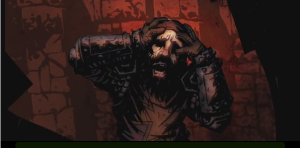This past year has been great in reaching out beyond just the audience here to people in my local community about videogames and game design. However, the study of game design continues to be a mystifying art for some, and it hasn’t gotten any better since I started Game-Wisdom 7 years ago. With the growth of the industry and being accepted worldwide, there really needs to be more than just a handful of discussions about game design.
The Low Bar:
The last time we had this discussion, I drew my line in the sand about how I feel about the state of Game Journalism. I find that the majority of “coverage” out there — from youtubers and streamers to major sites to be useless.
For someone wanting to learn about game design, the majority of information out there is irrelevant. Youtubers making rant videos about companies “killing games” or “being against gamers” is just tabloid trash. While the “professional pieces” on major sites tend to fall between someone just reporting what someone else said, and fluff pieces that don’t really educate anyone on design or the game in question. To continue getting myself into trouble, I do question many people who write and talk about the game industry on their knowledge of game design.
If you want to learn about game development and what it means to work in this industry, the majority of sites, youtubers, and streamers out there will not help you. One of the reasons why I can talk about game design these days is the very fact that I’ve interviewed over 400 developers about design; not PR, but actual game development.
Some days I feel that I’m five to ten years ahead of everyone else when it comes to these discussions. Frequently, when I want to write a piece on a concept or design theory, I’m still either the top or near the top link when searching for it on Google. Several concepts I’ve talked about when it comes to game design, consumers don’t think about, let alone people who make games for a living.
I can’t wait to see the reception of my second book covering a genre that is over 30 years old that no one else has ever taken the time or thought to explore from a design and educational perceptive.
Game development is very hard to put into words, and why most people don’t cover it; however, that difficulty also brings me to another problem.
Bringing it Down to Earth:
Game development is a topic I feel that hasn’t gotten enough credit as a field of study. If we’re talking about the time that videogames became accepted in pop culture (around the early 00’s), then the industry from that point of view is not even 20 years old.
Too many people, from inside and out of the industry, treat design as this mythical creature that can’t be understood or tamed. When something goes wrong, they’ll chalk it up to hindsight, when people who understand development can see the writing on the wall. We’ve said this many times over: What you don’t know about how games work can hurt your chances of succeeding.
When I examine titles, it’s easy for me to see how a game compares to other titles in the genre from a playability point of view. Too often for my tastes, I see games from indie developers that play like they have either never touched a game from the genre, or willingly chose to ignore all design sensibilities from it.
The problem with trying to learn game design is that just saying the phrase “game design” and trying to teach it is akin to saying “craftsman” or “engineer” — it is a multifaceted topic across multiple disciplines.
Just because you built a game of one genre doesn’t automatically make you an expert in another; similar to the differences in metalworking vs. woodworking. More importantly, even if you made an amazing strategy game or FPS, that doesn’t mean you’re going to be good at making an RPG or platformer.
The number of topics that go into game design is staggering, and I should know; besides writing about game design, I have three years’ worth of videos examining single topics, and I’m nowhere close to covering it all.
This makes it very difficult to explain even the basics about game design to people, because there’s never just one thing. Good UI design may be universal, but there’s a difference between the UI for a puzzle game, a strategy game, platformers, and so on. Someone who wants to learn about FPS design may not care about RPG development.
When trying to make videos or posts related to game design, the field in of itself is very niche, but then we drill down into the individual topic makes it even harder for people to find out about it. Outside of common phrases like “How do I build a videogame?” “what is game design?” most people aren’t typing in specific questions.
Is it Getting Better?
The real positive I’ve seen about the growth of game design has not come from game designers or members of the industry, but from the schools and libraries. We are seeing a push to bring videogames to education and the study of game design.
At the end of the day, game design is both an art and science (and why it’s in the tagline for game-wisdom). There are many people who only focus on the art and chose to downplay or ignore the science part. If you can’t learn the fundamentals of what it means to design a videogame, then chances are you are going to end up with a bad game no matter how much work you put into it.
I see this from a lot of indie developers who put their heart and soul into a project and wonder why no one is buying it or it’s getting bad reviews, to only find major UI and design issues that should have been caught within 10 minutes of play. I know there are indie developers who don’t like the word “bad”, but guess what? If you actively ignore negative reviews and comments about your game, then you are never going to improve.
It’s very easy to look at the structure of a game or genre and write it off as someone telling you what to do, but that kind of thinking is akin to someone designing a car without brakes because you wanted to think outside the box. While game design isn’t rocket science, it still requires research and work to get right. Messing up on UI design and playability are no longer valid excuses when there are dozens of games being released daily.
There should be a greater respect for game design across all areas of the game industry, because it doesn’t matter how pretty or thought provoking your game is if no one wants to play it.



